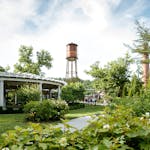Theodore Roosevelt National Park has a cabin where its namesake president once lived, grand wildlife like bison and elk, and a rugged landscape with spires known as hoodoos. Beginning June 1, it also has a slightly higher entrance fee.
A visit to the North Dakota park now costs $15 per person; it had been $12. The costs for a noncommercial vehicle or a motorcycle rose $5, to $30 and $25 respectively. (The fee for a vehicle covers all the people inside; the single-person entry fee is for those who reach the park by walking, biking or taxi.)
The park is one of 117 National Park Service sites that charge an entrance fee, and the costs for all of them have been raised, effective either June 1 or Jan. 1. At some, prices will rise again in 2020. They range from monuments and battlefields (Antietam National Battlefield in Maryland, for example) to big-name national parks such as Yosemite, Zion and Rocky Mountain. Nearly all of the most-visited national parks saw fee increases (Great Smoky Mountains has no fee), so for some Minnesotans, the cost of a summer vacation just ticked up.
Vacationers planning to stop at Glacier National Park should be prepared to pay $35 per vehicle, up from $30. The same is true at Yellowstone and Grand Canyon National Parks. Visitors to Badlands National Park in South Dakota have a reprieve until Jan. 1, 2019, when the price of a vehicle entry will rise from the current $20 to $25; it will go to $30 on Jan. 1, 2020. In all cases, there is also a price increase for individuals and motorcycles.
Of the six national park sites in Minnesota, only Pipestone National Monument is slated for a price increase, although it is currently free due to a temporary suspension of fees.
The suspension, unrelated to the nationwide fee overhaul, is ongoing while management undertakes an analysis of "costs associated with collection and to ensure that fees are directed to the highest priorities, including deferred maintenance," said Lauren Blacik, superintendent at Pipestone.
The monument in southwest Minnesota, known for its prairie landscape and the pipestone quarried by American Indians, is one of the Park Service sites that have collected fees; if fees are reinstated at the monument, the current plan as outlined by the agency is to charge $10 per person rather than $7. (Indians, many of whom deem the land sacred, have always been given free access to the monument.)
Minnesota's Voyageurs National Park — a wild world of lakes, islands and shoreline thick with forest, on the border with Canada — charges nothing to enter. Fees for overnighting, either via houseboat or camping, have not gone up. Other Minnesota sites managed by the Park Service — Grand Portage National Monument, Mississippi National River and Recreation Area, North Country National Scenic Trail and St. Croix National Scenic Riverway — are free of charge.
In November, the Park Service proposed sharply hiking fees at 17 of the most popular national parks during peak season as a way to help fund a backlog of projects needed for park upkeep. To address its $11.6 billion in deferred maintenance, the agency suggested a fee of $70 per vehicle, $50 per motorcycle and $30 for individuals for entry at Yosemite, Yellowstone and other top parks. A public backlash led to the revised plan, which increases the number of sites facing fee increases but keeps the price increases marginal. Fees have risen by an average of about $5.
"More than two-thirds of national parks will remain free to enter," the agency wrote when announcing the new plan. Of 417 national park sites, entrance fees rose, or will rise, at 117. While some of the money collected will go to other National Park Service sites, at least 80 percent will serve the park at which it was collected.
Projects funded by park fees are designed to make the parks better places to visit. At Organ Pipe Cactus National Monument in Arizona, for instance, an accessible parking lot and path to a restroom will make the monument easier for visitors who use wheelchairs. At Acadia National Park in Maine, repair of crumbling historic step stones and gravel tread will enhance a walk on the popular Beech Cliff Loop Trail. Virginia's Shenandoah National Park will get a new trail bridge.
The Park Service offers free days, when fees for entry are waived. Two are still upcoming in 2018: Sept. 22, which is National Public Lands Day, and Nov. 11, Veterans Day.
Fourth-graders and their families can visit parks for free. Children who are in fourth grade for the 2017-2018 school year can apply for a free pass that admits one vehicle or all children under 16 and up to three adults in a group for free. For more information, go to everykidinapark.gov.
Kerri Westenberg • 612-673-4282
@kerriwestenberg






